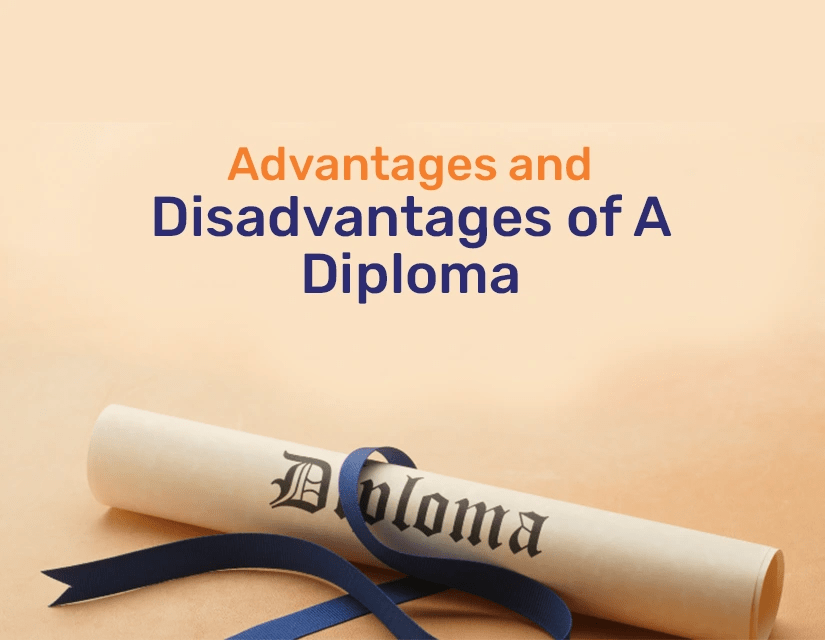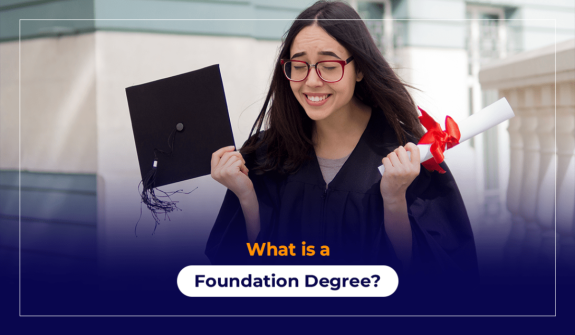
In the recent past, you had to have a four-year bachelor’s degree to start a career. With the rapid change in the workplace, there are many routes to start your career and become successful. A diploma is one such way that’ll help you get a job and promotion.
If you don’t know yet, you might want to know- what is the difference between a degree and a diploma? A degree is a more comprehensive learning in a chosen stream in a university or a college. But a diploma is concentrated learning in a specific subject. Read through this write-up to know more about this topic.
A degree is an all-around qualification offered by universities and colleges where you select an area of study as your major. The duration of a degree ranges between 3 to 4 years. You'll be awarded a bachelor's or master's degree upon successful completion.
The requirements for completing a degree vary based on how many credits you have to complete and what major you’ve selected. You might have to complete up to 180 credits for your bachelor’s degree, which will take 4 years. For a master’s degree, you will need up to 2 years.
You have to pass your higher secondary exam to apply for a degree. And after completing the bachelor’s degree, you can pursue a master’s degree. You must be a full-time student and invest time and effort to earn a bachelor's degree.
From degrees, you will get a comprehensive knowledge of your subject. Plus, you will have to attend an internship for real job experience. There are four types of university degrees in the UK. They are:
In a degree, you will have to study your chosen subject comprehensively, and you will have options to select some courses of interest.

A university degree is a journey of experiences. You will learn so much during your studies. Not only from the academic lessons, but you’ll also learn many things from your professors and fellow students, which you can apply later in your life.
However, there are advantages and disadvantages to degrees. Generally, there are more advantages to achieving a degree. Here’s why you should study for a degree:
Now, here are some advantages of Degrees:
A diploma is an official document certifying the completion of a course of study, typically awarded by educational institutions such as high schools, colleges, or vocational schools.
Are diplomas and degrees the same? Not. A diploma is somewhere between certification and a degree. Diploma courses are more detailed than certificate courses and less detailed than degrees. It generally takes 1 to 2 years to complete a diploma. It's a vocational or technical qualification.
Diploma courses give an in-depth idea about your subject matter. But the knowledge is concentrated or content-based. You can explore more about that subject later if you pursue a degree in that subject.
It'll give you the basic field-specific knowledge to prepare you for your current work setting, and you'll gain hands-on experience and practice your skills during a diploma. Diploma courses can be attended right after passing the high school examination.
Diploma courses are designed to give students more practical experience in the subjects. It's always a good option if you want to switch your work area quickly. However, the requirement to pass a diploma course depends on your course.
In the UK, diploma courses are available from Level 2. You can take online courses to complete your diploma. Many reputed online platforms are offering good-quality diplomas in various fields.
There are two types of diplomas:
A diploma course does not cover a broad range of subjects. You will have to learn specific content or skills that you’ll apply to your workforce. There are fewer credit hours and less overall pressure to complete a diploma.
Read Also:

You might ask- is a diploma a suitable qualification? Like degrees, diplomas also have some pros and cons. It’s comparatively an easy route to take if you want to prepare yourself for jobs. Besides, it allows you to change your area of work pretty quickly.
Let’s see some of the benefits of diploma courses:
Here are some disadvantages of Diplomas:
Most often, professionals already in the workforce go for diplomas. You can choose a diploma course and enter the workforce if you want a job right after high school.
You have learned about the degree and diploma in detail in the previous section. But it might all be juggling in your head. So, let me help you settle things down. I’ll show you the difference between a diploma and a degree in a table.
You will get an overall idea of how they differ from the table. So, here's a table showing the key differences between degrees and diplomas.
|
Specification |
Degree |
Diploma |
|
Minimum Entry Qualification |
Higher Secondary |
High School |
|
Cost |
Significantly More |
Less |
|
Duration |
3 to 4 Years |
1 to 2 Years |
|
Learning |
In-Depth Learning About the Subject |
Holistic Skill-Based Learning |
|
Expected Salary |
Higher |
Lower |
|
Admission |
Annually |
Half Yearly |
|
Awarded By |
Universities or Colleges |
Universities, Colleges, and Private Institutions |
So, I'm sure after watching the table, you can now say the differences between a degree and a diploma.

A diploma is not a degree; it's typically a credential representing specific skills or vocational training.
Yes. You can do a degree after completing a diploma. Some diplomas will help you get admission into universities and study specific subjects. In the UK, diplomas hold USCA scores, which will benefit you while getting admission into universities.
Of course, a diploma course will help you get a job. Diploma courses are specifically designed for professionals already in the workforce or fresh high school graduates ready to enter the job market. Diplomas are skill-based courses to enhance your hands-on experience.
There’s no specific answer to this. Both have some advantages and disadvantages. While degrees are more prestigious, you should decide which one to go for wholly based on your needs and requirements. It’s just degrees are more comprehensive, and diplomas are concentrated.
No diploma is equivalent to a degree or graduation. Degrees are higher certifications or qualifications than degrees. Plus, degrees are the next level of diplomas. So, a 3-year diploma is not equivalent to a degree.
Getting a diploma is very popular among students and working professionals. It helps students to get into universities and colleges for higher studies. Plus, it helps professionals achieve hands-on experience and allows them to switch professions quickly.
A diploma is generally lower in educational attainment than a degree. A diploma is a certificate awarded for completing a specific course or program, often requiring less time and depth of study compared to a degree, which is a higher level of academic achievement earned through comprehensive study and specialisation in a specific field.
A diploma is typically considered a certification of completion at the post-secondary education level. It is awarded after completing a specific program or course of study and is often associated with technical or vocational training. Diplomas are generally one step below an undergraduate degree in terms of academic qualifications.
I hope you got the answer on what is the difference between a degree and a diploma. It’s just that they are two different things, but interconnected as well. Both will help you get jobs and succeed in life. Make sure you do them from a well-reputed organisation, whether it's a degree or a diploma.

October 29 2024

July 22 2025

February 25 2024

February 25 2024

 Dr. Shafiq
Dr. Shafiq
 February 25 2024
February 25 2024
 05:40:00
05:40:00
Do you have a career plan in a Senior Care or Supervisory Care position? If so, a Level 3 Diploma will help...
Read more...
 Dr. Shafiq
Dr. Shafiq
 February 25 2024
February 25 2024
 05:43:00
05:43:00
If you are living in the UK or planning to do that, you must know about the education system there. The UK&...
Read more...
 Dr. Shafiq
Dr. Shafiq
 February 25 2024
February 25 2024
 05:50:00
05:50:00
So you want to know- what are vocational qualifications? Vocational qualifications are specific work-based ...
Read more...